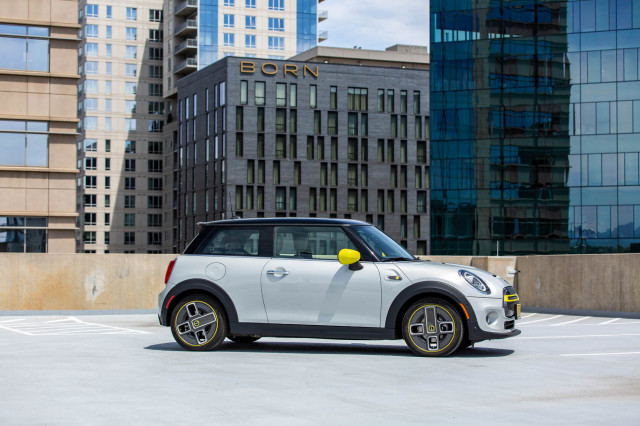The Mini brand, part of BMW, announced Tuesday that it’s pushing ahead with what it termed a realignment of its model range, aimed at a wider range of electric vehicles and a stronger focus on China.
To that end, Mini says that it will offer “a completely electrified model family” while also offering gasoline and diesel engines aimed at markets where “mobility needs are not yet me(t) by all-electric vehicles.”
That’s sounding less ambitious than the plan reported by several outlets last year, citing inside sources in saying Mini planned to nix all future gas engines for the brand and streamline global offerings to three core EV models.
Currently, Mini’s electric-vehicle lineup includes the Mini Cooper SE, a model that’s rather limited in the U.S. by its three-door layout and 110-mile EPA range.

2020 Mini Cooper SE
With this update, the brand said that the future EV portfolio will include a 3-door hatch—perhaps something to more closely evoke the classic Mini Cooper—plus a new small-car crossover, and another compact crossover. The yet-to-be-detailed small-car crossover will be an exception to Mini’s full-range approach, exclusively offered in all-electric form.
Furthermore, the next-generation version of the Mini Countryman will offer a choice between internal combustion and all-electric versions. Mini notes the Countryman range is especially important as it makes up about 40% of the brand’s global vehicle sales.
Looking specifically to China, the brand’s joint venture with Great Wall Motor will allow a range of electric Mini models to be built there starting in 2023. That will allow the Mini brand to change its status from import brand to “locally producing automotive supplier,” Mini says.
What’s missing from this announcement is a production target for the models intended for Europe and North America—or even an arrival year for them.
That likely isn't an oversight. Expect more niche brands like Mini to start nailing down EV specifics for the U.S. soon, but not until after the Presidential election next week.
